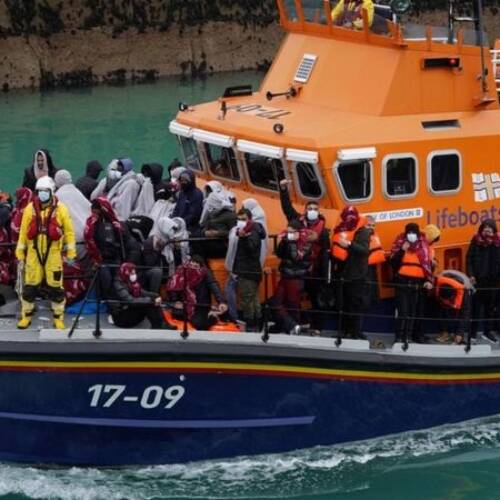
What the Nationality and Borders Bill will Mean for Refugees
10 Dec 2021A week on from the tragic passing of 27 migrants travelling across the Channel towards the UK from France, and migrants are now facing harsher restrictions- making the risky journey towards hope for a better life in the UK all the more futile. On Wednesday the 1st of December 2021, a boat carrying a large group of refugees sank in the Channel off of the French coast, The International Organization for Migration has called it the biggest single loss of life in the channel since it began collecting data in 2014.
So why take the risk when the journey poses such a threat to the safety of all on board the boat and when the potentiality of a brighter future in the UK is uncertain to say the very least? Well contrary to popular belief, and the beliefs of French Interior Minister Gerald Darmanin, the UK job market is not the lucrative pull factor for migration that it is made out to be. The UK government has, in the past decade, tightened laws on employment- making it much more difficult to work illegally with employers facing fines for employing someone without the right to work. The BBC posited in a recent article that family ties are the essential cause behind much of the push for migrants to travel from France to the UK. According to a survey carried out by researchers from the International Health Journal, of the 402 people at the former Calais “jungle” camp, only around 12% wanted to remain in France, while 82% planned to take the risky journey to the UK. Secondarily, some Calais based migrants also alluded to the historic connections between the UK and their own countries as a reason for their desire to reach the island. However, behind all these pull factors lies the blatant and unignorable push factor that causes most of these cases of migration in the first place: conflict and instability.
In the past, refugees would typically attempt to reach the UK by smuggling themselves or being smuggled by human traffickers on the backs of lorries crossing the port of Calais into the UK. However, in recent years and in direct response to the influx of migrants reaching the UK by lorry, security has been tightened on either border leading to more attempts being made via boat – this is according to Tony Smith (former director general of UK Border Force). Smith also comments on the impact Covid-19 has had on the entire process, pointing towards the decrease in lorries travelling to the UK as the main reason for the change in approach by migrants and their traffickers: “Human smugglers have changed their tactics and they’ve now taken to this relatively new phenomenon of putting people into small boats and bringing them across in that way”.
So far this year, Channel crossings into the UK via boat have exponentially exceeded previous years with this BBC graph showing just how sharp the increase has been in comparison to both 2019 and 2020:

In addition, asylum claims are at their highest since 2004 according to official estimates- however, the UK is in fact receiving a minority of the total amount of migrants travelling towards Europe. Germany bears the main brunt of the crisis with France and Spain not far behind according to official UK Home Office figures- most migrants choose to settle and claim asylum in the first country they arrive in- namely Greece and Turkey.
How then, have the UK government decided to tackle this issue? Well Home Secretary, Priti Patel’s, plan to use UK border forces to physically push back small boats trying to cross the channel has been ineffective and several charities including Care4Calais and Channel Rescue argue that this policy is in fact unlawful under human rights and maritime laws. In July the current Tory government introduced a bill (the Nationality and Borders Bill) sponsored by Patel, that would radically change the current asylum system. Since then this Bill has now reached its final reading and, if passed, will give the home secretary the right to strip a person of their citizenship without first being informed, potentially invalidate asylum claims made by any undocumented persons – further criminalising undocumented individuals who attempt to claim asylum (they face up to 12 months in prison under new laws), as well as anyone taking part in the refugee rescue missions in the English Channel, and would provide immunity to border force staff in the event that a migrant/migrants were to die in operations attempting to push boats back into French waters. This Bill does not only affect incoming migrants but also UK nationals with dual nationality who could potentially lose their British citizenship without any knowledge of this occurring.
New figures suggest that around 88,000 people are still waiting for a decision on their asylum claim with less that 20% of application being processed within the six-month foal set by the Home Office – this is according to studies by the Migration Observatory.
At the heart of all the politics and statistics, however, lies the fate of real people- majority fleeing harrowing experiences in their home countries and searching for safety in precarious dingy boats over the Channel. The perceived British betrayal of the Afghan people who make up a large proportion of these refugees has never been more tangible and there is no doubt that these people, who seek nothing but betterment for their lives and that of their children, will continue doing whatever it takes to reach the UK and achieve exactly that.









